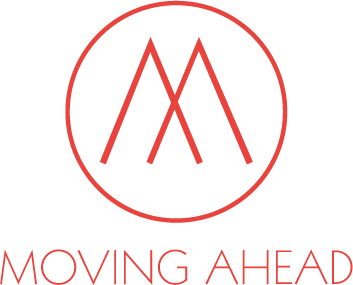Meet caroline casey
Meet Caroline Casey, Founder of The Valuable 500
Caroline Casey joins us at next week’s Gender Balance Summit 2021 as a keynote speaker, bringing her passion around disability inclusion and diversity to the stage. We chart her extraordinary journey . . .
Registered blind at birth, Casey’s journey to changemaker has been an inspirational, unusual and even outlandish one. Challenging the status quo has been her vision — beyond the limitations of her physical sight — although for 11 years, she kept her disability hidden behind her ‘visually able’ appearance, climbing the corporate ladder as a management consultant at Accenture. At 28, and realising she needed to reassess her life and come out from behind her ‘secret’, she quit her job to fulfil a childhood dream and trek 1,000km across India alone with an elephant — becoming the first western female ‘mahout’, or elephant handler, in the process. This odyssey gave her the courage to stand up and live her truth, and to launch her career as a social entrepreneur on her return. March 8th this year is marked by both the Gender Balance Summit and International Women’s Day, and no one embodies the latter’s 2021 theme #ChoosetoChallenge more than Casey. For her, inclusion is a tough and complex journey with truths we still don’t face: “We are really uncomfortable with the truth that we are really uncomfortable with difference. But in society and in business we need to own that truth as part of being human. If we don’t own it, we’re not going to get over it.”
Finding her vision
Dublin-born Casey, was diagnosed with ocular albinism – a genetic eye condition that results in severely limited vision — at birth, but only discovered she was registered blind at 17 by accident when she asked her father for driving lessons. Her parents decision not to tell her she was blind and send her to school without preamble had forced the young Casey to adapt, assuming her sight was normal. Upon finding out about her disability, she made what she calls her ‘first conscious act of discrimination’ because she didn’t want anyone to find out. “I didn’t own who I was. I wanted to have the life I wanted – and not have people focus on the things I couldn’t do.”
This tension helped to shape her outlook around her own ability and disability and would in the end forge her reputation as a passionate and powerful advocate for inclusion. In 2008 she formed her company, Kanchi, in honour of the elephant she used on her Indian expedition, which promotes hiring people with disability and filmed a 2011 TED talk Looking Past Limits which has since garnered over 2.4m views.
In the UK, the average disability pay gap stands at 12.2 per cent (Office of National Statistics, 2018), while Scope analysis reveals fewer than half of disabled people have jobs compared with eight out of 10 non-disabled people. And despite the recent interest in diversity, only four per cent of companies are focused on making disability inclusive offerings. There is clearly much work to do, and Casey is determined to do it — with a little help from some of the world’s most influential business leaders.
She strongly advocates for a greater understanding around the business case of disability inclusion – which affects 1.3bn people in the world - and for closing the leadership gap around the issue. For her, disability inclusion is a new wave of differentiation that brands, leaders and companies can embrace to differentiate themselves and live out their values.
Casey also strongly believes that disability inclusion has a wider impact than most consider and is in fact a crucial part of futureproofing the world. “We are all temporarily-abled,” she argues. “If we’re going to grow old then we’re all going to have bits of us that don’t work so well in the end.”
The business of change
Casey launched The Valuable 500 in January 2019 at the World Economic Forum in Davos to be a key driver of this change. The campaign aims to get 500 global companies to put disability inclusion on their agenda by January 2021 as a way to ‘build an inclusive world where everybody wins’. In turn, she hopes that these powerful allies will be the tipping-point to help unlock the social and economic value of people living with disabilities around the world. Casey’s call is for businesses – and society – to stop being ‘divers-ish’, or selectively inclusive of some types of people, and to bring inclusivity into its fullest manifestation by putting disability on equal footing with other areas of diversity.
With Valuable 500 signatories now at 436 her goal is in sight and the campaign has already secured commitment from global businesses including Airbnb, Adobe, BBC, Bloomberg, Coca-Cola, Santander, Unilever and Sony Music. Post-pandemic, with huge opportunities to challenge and change old world systems, the global business community is at a pivotal point in its journey toward greater inclusivity around disability. For Casey, the time is now, and the goal is nothing short of putting disability and inclusion on the radar of every business. “I won’t consider myself successful’ until we stop hiding who we are,” she says. “The best thing about being human is the one thing we have in common that we’re all different.”



